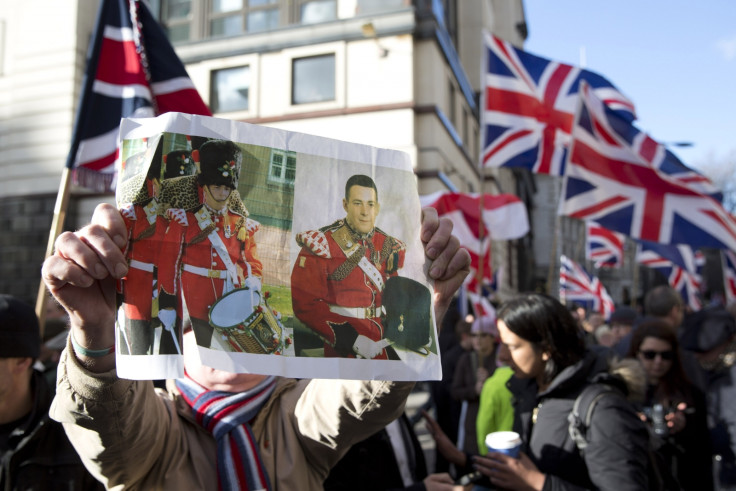Lee Rigby Murder: Key MI5 and MI6 Failings in Lead Up to Jihadist Attack

The highly anticipated report into the death of Fusilier Lee Rigby has revealed that Britain's secret service made "a number of errors" in the lead up to the murder.
The 192-page report by the Intelligence and Security Committee (ISC) said that "given what the agencies knew at the time, they were not in a position to prevent the murder of Fusilier Rigby".
However, MI5 and MI6 were criticised for not being more persistent in monitoring one of the convicted killers, Adebowale.
So what were the key "errors"?
Lack of Recording
The ISC made it clear that it had discovered a "number of errors" and "criticisms where processes have not been followed or decisions have not been recorded."
The two men had been flagged up by seven different intelligence agencies but had still been kept as "low level subjects of interest" throughout the process.
This was exacerbated by errors in operations carried out and therefore even less decisions or processes were being recorded on the system.
Lack of Escalation
The inquiry found that Adebowale was never more than a low-level subject of interest despite the secret service previously trying to recruit him "because of his familiarity with jihadi circles".
The ISC also slammed MI6's "apparent lack of interest" in Adebolajo's arrest in Kenya in 2010, despite him apparently preparing to fight with Somali militant group al-Shabab.
Delaying Intrusive Techniques
The ISC said that "one event that gave us cause for concern was the delay in submitting an application for further intrusive techniques against Adebowale."
Intrusive techniques involve eavesdropping on a target's home or vehicle, but even the MI5 has to obtain permission through legal bodies to be able to do so.
The process is also subject to strict control and oversight.
"If the application had not taken nearly twice as long as it should have – coincidentally, being sent to the Home Office only the day before the murder itself – MI5 would probably have had intrusive coverage of Adebowale in place during the days before, and on the day of, the attack," said the ISC.
It added that investigators were "surprised" when the agencies didn't know basic facts about the whereabouts of the individuals or tried to increase coverage of them.
However, it hinted that it wasn't necessarily the fault of MI5 or MI6.
"On each occasion MI5 has said that they did not have sufficient cause to obtain authorisation for such actions: in order to take intrusive action they must meet the rigorous threshold set down in law, and be able to demonstrate that the action is both necessary and proportionate, in order to gain approval from the Home Secretary," said the ISC.
"These points demonstrate how high the threshold for intrusive action is in practice. There are those who feel that the intelligence and security Agencies have too much power to intrude into an individual's privacy.
"However, when a terrorist attack happens, the question often asked is why the agencies did not do more to prevent it. The balance between these two concerns is one that we are considering further in our separate inquiry into privacy and security issues."
The Cumulative Effect
The ISC made it clear that the litany of errors made by MI5 led to a "cumulative effect" of problems when it came to monitoring Rigby's killers.
"Whilst we have concluded that the errors identified would not, individually, have affected the outcome, we have also considered whether there was a cumulative effect – i.e. whether, taken together, they might have made a difference.
"We do know that they would have led to different investigative decisions. However, it is impossible to conclude that those changes – all dependent on one another – would have resulted in MI5 discovering evidence of attack planning.
"We do not consider that, given what the Agencies knew at the time, they were in a position to prevent the murder of Fusilier Lee Rigby."
On 22 May 2013, Rigby was slain in broad daylight as he returned to Woolwich Barracks from a shift working at a Tower Bridge recruitment office.
Michael Adebolajo was sentenced in February to a whole-life term and Michael Adebowale was jailed for a minimum of 45 years for the killing.
© Copyright IBTimes 2024. All rights reserved.







